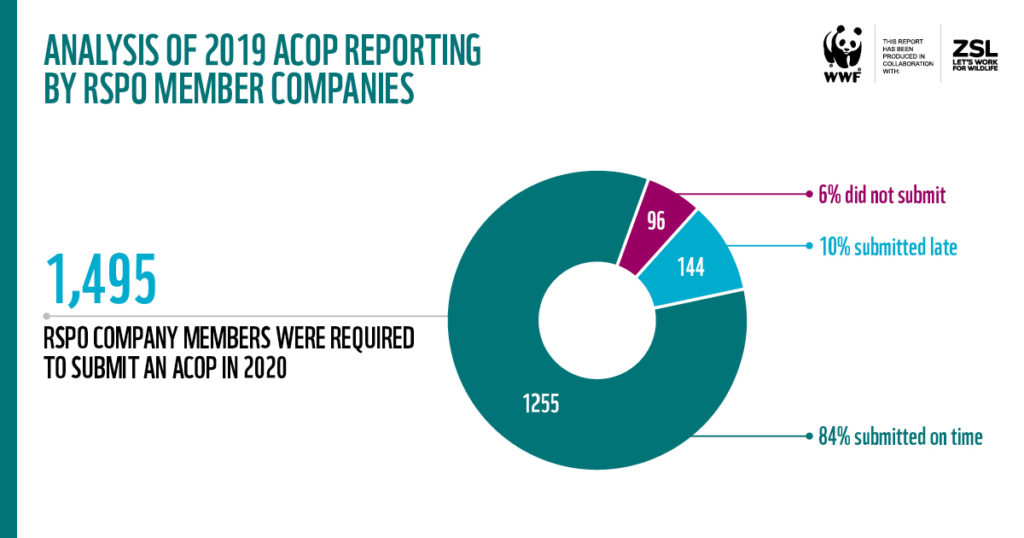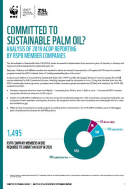The Roundtable on Sustainable Palm Oil (RSPO) unites thousands of stakeholders from across the palm oil industry to develop and implement global standards for sustainable palm oil.
Each year, Ordinary and Affiliate members are required to submit an Annual Communication of Progress (ACOP) report to measure progress towards the RSPO’s shared vision of “making sustainable palm oil the norm”.
In this second edition of ‘Committed to Sustainable Palm Oil?’, WWF and ZSL (Zoological Society of London) analyse the ACOP reports submitted by RSPO members this year, detailing progress made by companies in 2019. Diving into the data from four key RSPO membership sectors (growers, processors and traders, consumer goods manufacturers [CGMs] and retailers), the WWF-ZSL analysis found that:
- Company response rates have improved slightly — increasing from 80% in 2017 to 84% in 2019 — but several RSPO member companies still did not submit an ACOP report.
- Uptake of 100% RSPO certification is on the rise across all membership categories, with downstream companies leading the way compared to their upstream counterparts; however, all companies need to take more immediate and meaningful action to close the certification gap.
- While several companies have made progress in meeting their commitments to be 100% RSPO-certified, many of the biggest palm oil producers and buyers are still falling short.
With 2020 deforestation deadlines fast approaching, it is more urgent than ever for all actors in the supply chain to take their share of responsibility to deliver a sustainable palm oil industry that benefits both people and nature.
WWF and ZSL call on all RSPO members to accelerate progress in meeting their time-bound certification commitments, to regularly and accurately report progress against these, and to support actions beyond their own supply chain to deliver a sustainable and responsible palm oil industry.


